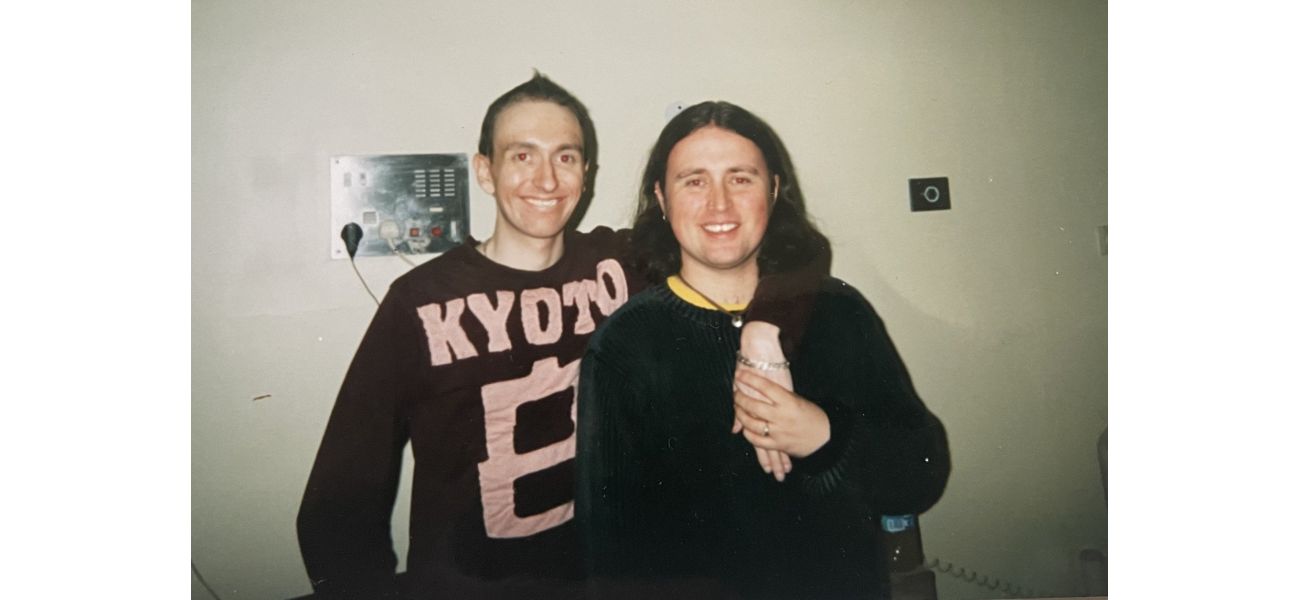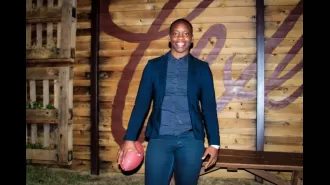AIDS patient seeks assisted death but changes stance after being hospitalized.
I'm thankful that I didn't have the option to escape during my darkest days, as I now have a great life.
November 28th 2024.

Jason and his brother were together in the hospital, facing a difficult time. It was September 2005, and Jason was a patient at St. Bartholomew's hospital in East London, undergoing treatment for AIDS-associated illnesses. As the days passed, it seemed like there was no end in sight for his suffering. His weakened immune system was constantly under attack, and he faced life-threatening infections like meningitis and pneumonia on a daily basis.
Before his hospitalization, Jason was a young person in his early 20s with a carefree attitude and no thoughts about his own mortality. But everything changed when he began experiencing seizures, losing control of his body and mind. He even suffered a cardiac arrest at one point and had to be resuscitated. It was a terrifying experience, and Jason couldn't help but think that death would be a welcome escape from his constant pain and the prospect of it continuing.
As the debate on assisted dying rages on, Jason reflects on the lowest point of his life. He didn't explicitly say it at the time, but he was in favor of assisted dying – not just for himself, but for anyone else who might want it. His father had expressed his support for it years before his own illness, and even during his illness, he had made his wishes clear by refusing a feeding tube and signing a do not resuscitate order. But sadly, these decisions only led to more suffering for him, with multiple episodes of pneumonia adding to the already unbearable pain caused by his disease.
If assisted dying had been an option back then, Jason's father could have chosen a peaceful and dignified farewell surrounded by his loved ones. But now, as Jason looks back on those dark days, he realizes that he's glad assisted dying wasn't available then, and he's convinced it shouldn't be now.
Jason's mindset has shifted over the years. He used to be a staunch supporter of assisted dying, but now he's grateful to be alive and living a wonderful life. He's no longer in favor of the controversial legislation, which would only be available to those given less than six months to live. But this change in perspective didn't come easily – for more than a decade, Jason struggled with deep depression and the stigma surrounding his HIV status. It took years for him to recover from the mental effects of AIDS, and he's not sure if he ever will fully.
But despite his struggles, Jason has found a new appreciation for life. He cherishes every moment spent with his loved ones, and he's grateful to be alive and able to make a difference in the world. And that's why he's now against assisted dying – he believes that more needs to be done to offer accessible and meaningful mental health support to those in their darkest moments. He worries that people will turn to assisted dying rather than seeking help for their emotional well-being. And he knows firsthand that there is always hope – even in the darkest of times, there may be a new treatment just around the corner.
While Jason acknowledges the importance of individual liberty, he's wary of any political movement that wishes to fast-track legislation like assisted dying. He believes that the most stringent safeguards must be in place to protect the person and their loved ones. And while he can't say for certain what the future holds, he knows that he never wants assisted dying to become an option. Because despite the struggles he's faced, Jason is grateful to be alive and able to make a difference in the world.
Before his hospitalization, Jason was a young person in his early 20s with a carefree attitude and no thoughts about his own mortality. But everything changed when he began experiencing seizures, losing control of his body and mind. He even suffered a cardiac arrest at one point and had to be resuscitated. It was a terrifying experience, and Jason couldn't help but think that death would be a welcome escape from his constant pain and the prospect of it continuing.
As the debate on assisted dying rages on, Jason reflects on the lowest point of his life. He didn't explicitly say it at the time, but he was in favor of assisted dying – not just for himself, but for anyone else who might want it. His father had expressed his support for it years before his own illness, and even during his illness, he had made his wishes clear by refusing a feeding tube and signing a do not resuscitate order. But sadly, these decisions only led to more suffering for him, with multiple episodes of pneumonia adding to the already unbearable pain caused by his disease.
If assisted dying had been an option back then, Jason's father could have chosen a peaceful and dignified farewell surrounded by his loved ones. But now, as Jason looks back on those dark days, he realizes that he's glad assisted dying wasn't available then, and he's convinced it shouldn't be now.
Jason's mindset has shifted over the years. He used to be a staunch supporter of assisted dying, but now he's grateful to be alive and living a wonderful life. He's no longer in favor of the controversial legislation, which would only be available to those given less than six months to live. But this change in perspective didn't come easily – for more than a decade, Jason struggled with deep depression and the stigma surrounding his HIV status. It took years for him to recover from the mental effects of AIDS, and he's not sure if he ever will fully.
But despite his struggles, Jason has found a new appreciation for life. He cherishes every moment spent with his loved ones, and he's grateful to be alive and able to make a difference in the world. And that's why he's now against assisted dying – he believes that more needs to be done to offer accessible and meaningful mental health support to those in their darkest moments. He worries that people will turn to assisted dying rather than seeking help for their emotional well-being. And he knows firsthand that there is always hope – even in the darkest of times, there may be a new treatment just around the corner.
While Jason acknowledges the importance of individual liberty, he's wary of any political movement that wishes to fast-track legislation like assisted dying. He believes that the most stringent safeguards must be in place to protect the person and their loved ones. And while he can't say for certain what the future holds, he knows that he never wants assisted dying to become an option. Because despite the struggles he's faced, Jason is grateful to be alive and able to make a difference in the world.
[This article has been trending online recently and has been generated with AI. Your feed is customized.]
[Generative AI is experimental.]
0
0
Submit Comment





